Dental Crowns Midwest City
Restore a Healthy, Flawless Smile

Do you have a damaged or decayed tooth? There are many reasons why that could be. Maybe it’s because of poor oral hygiene, trauma while playing sports, or you accidentally tripped and fell while simply walking. Whatever the case is, your tooth is at risk of more severe complications if you fail to seek treatment. Fortunately, Dr. Steven Kendrick offers dental crowns in Midwest City to strengthen and protect your smile. To learn more about this treatment option, continue reading or schedule a consultation today!
Why Choose Midwest City Dental Center for Dental Crowns?
- We Use Various Materials to Ensure Effective Results
- Dentist with More Than 20 Years of Experience
- We Welcome Your PPO Dental Insurance Plan
What is a Dental Crown?
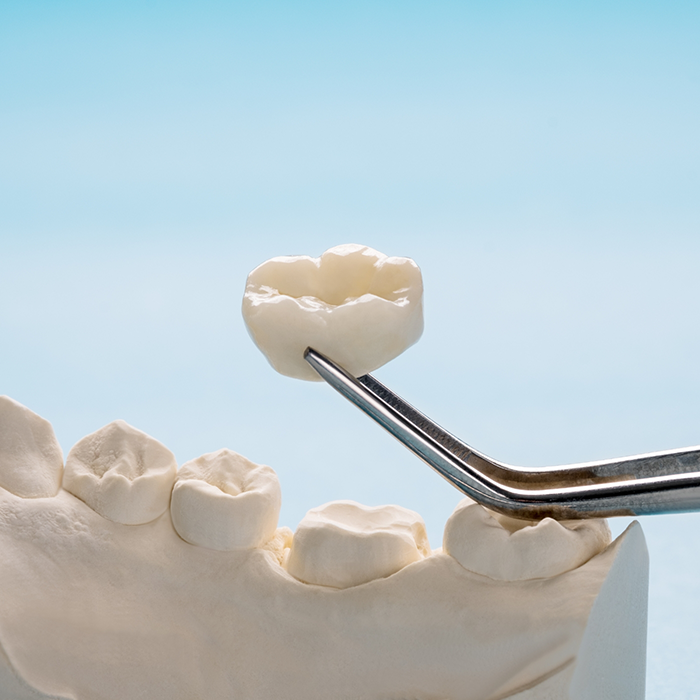
A dental crown, also called a cap, fits over the visible portion of a damaged or decayed tooth right down to the gumline. It can be made out of porcelain, porcelain fused to metal, gold, or metal alloys. Natural-looking porcelain is best for teeth that exist toward the front of the smile. At your consultation, you and Dr. Kendrick will discuss which material is best for your unique case. When it is supported by a dental implant, a single crown can replace one missing tooth.
The Process of Getting a Dental Crown

Before placing a dental crown, Dr. Kendrick must first reshape the natural tooth. Removing tooth enamel is necessary to create enough space for the new dental crown to fit on top. Once this step is completed, he will take digital impressions of the tooth so that an accurate and functional restoration can be created.
If sent to a local lab for fabrication, you will be required to wear a temporary crown to keep your tooth protected between appointments. Once your crown is ready, you will return to our dental office to have it secured in place.
The Benefits of Getting a Dental Crown
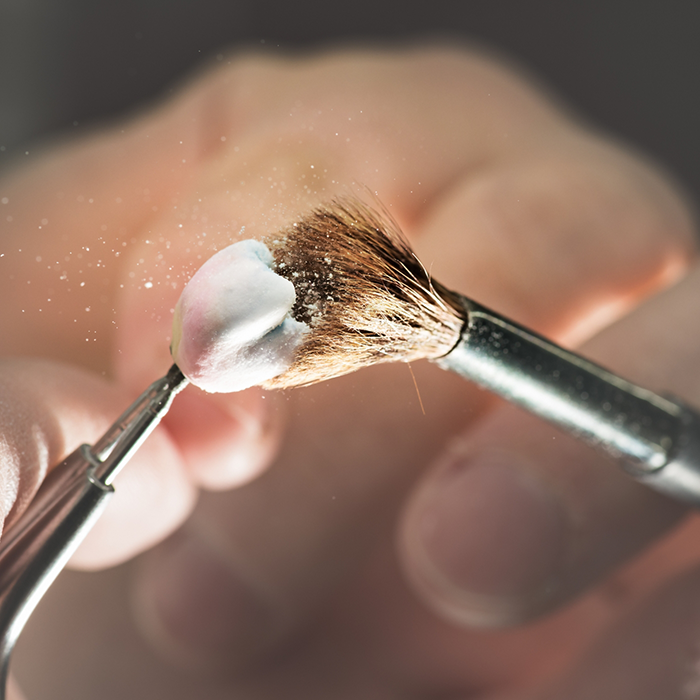
Dental crowns are one of the most popular and trusted options in restorative dentistry – and there’s a good reason for that. Patients can expect to enjoy many benefits, including:
- Improved comfort and chewing ability
- Lower risk of severe oral health issues down the line
- Protect the natural teeth from needing to be extracted
- A lifespan of about 15 years with proper care and maintenance
- Natural-looking restored smile
- Custom-made to feel comfortable in the mouth
Understanding the Cost of Dental Crowns
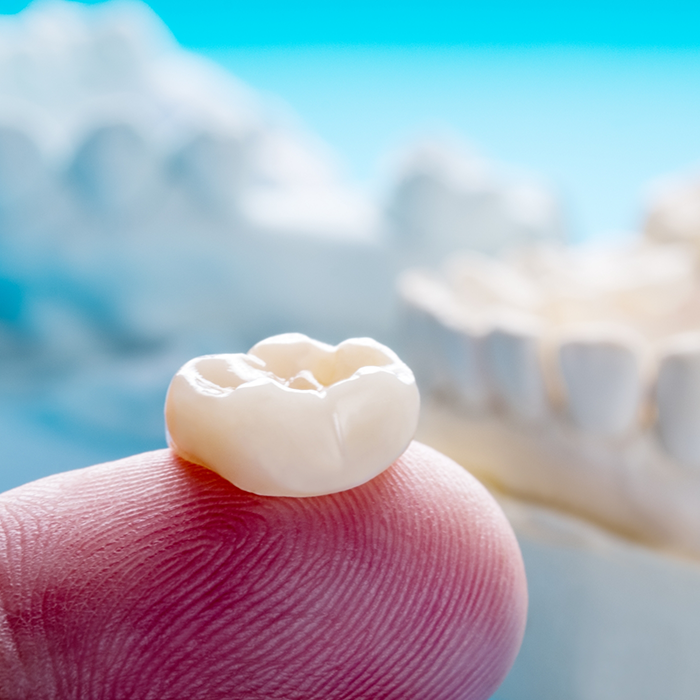
Now that you better understand what it’s like getting dental crowns and how they can potentially benefit you, it’s natural to have questions about how much they cost. However, we are unable to provide an estimate until after you’ve had a consultation with Dr. Kendrick because the total amount due is based on your unique circumstances.
Several different factors are considered when calculating the price of your prosthetics. Continue reading to learn more, and feel free to contact us for more information.
Factors That Affect the Cost of Dental Crowns
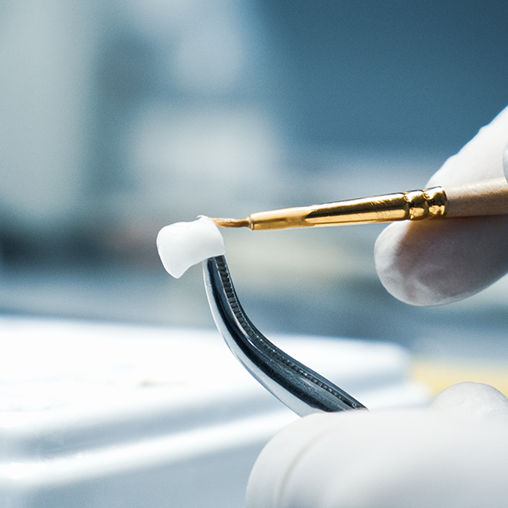
Our team must consider a few different factors to determine the rate for your restoration, such as:
- Whether other procedures are necessary. If we find signs of cavities, gum disease, or other issues that could interfere with your results, we’ll have to treat those first. You’ll be responsible for covering any additional services.
- The material used. Your prosthetics can be made from porcelain, porcelain fused to metal, gold, or other amalgam alloys. The type you choose can impact the price.
- How it’s made. Traditionally, dental crowns are created at a special dental laboratory, but some providers use an onsite milling machine and CEREC technology, which changes the rate.
Many patients are tempted to choose the least costly options, but when it comes to your smile, remember that investing in a quality product can boost your confidence and preserve your tooth’s functionality for years.
Does Dental Insurance Cover Dental Crowns?
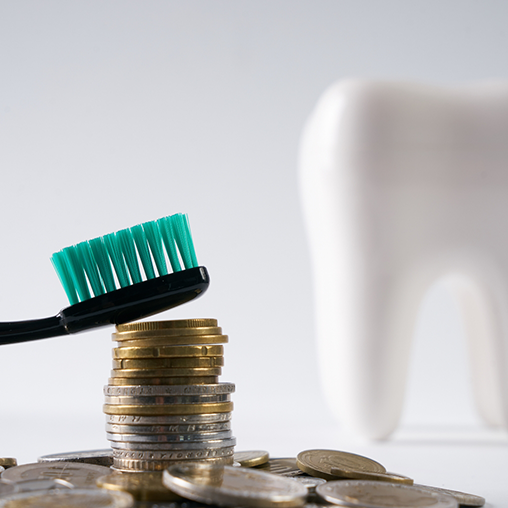
Getting a dental crown is considered a major procedure so dental insurance plans typically cover about 50% of this service. That said, all policies are different so you may want to verify your details to understand what’s available to you. There may be restrictions, like only a certain number of teeth can be covered, or a waiting period must pass before benefits kick in.
Please let us know if you need help finding the information about your policy! Our friendly office staff is familiar with many providers and can help you maximize your benefits.
Options for Making Dental Crowns Affordable

We know not everyone has a dental insurance policy, but we don’t want your budget to keep you from essential services to safeguard your smile. If you’re worried about paying for your dental crowns, you might benefit from one of our in-house membership plans. We offer several tiers at different price points so that you can find one that works for you. You can receive many helpful benefits for a low monthly fee, including a 20% discount on most dental services.
Are you interested in discussing your upcoming dental crown treatment with Dr. Kendrick? Contact our team at Midwest City Dental Center and schedule an appointment today!
Dental Crown FAQs
Are Dental Crowns Permanent?
Although dental crowns can provide a long-lasting solution for protecting your natural teeth, they won’t last forever. You can expect your restoration to last between 5 to 15 years, depending on how well you take care of them. It’s also important to remember that your permanent teeth will need to be prepared for dental crowns. This involves removing a small portion of enamel, which will not grow back on its own. For this reason, you will need to replace the restorations when necessary to continue protecting the underlying teeth.
How Do You Know When a Dental Crown Needs to Be Replaced?
The surest way to determine if you need to replace a dental crown is to visit us for an oral examination. Our team can take X-rays to monitor your teeth and restoration before deciding if a new one will be necessary. However, several symptoms can indicate if a dental crown needs a replacement, including:
- Instability: If your crown is feeling loose, contact us right away
- Discomfort: This can be a sign that your underlying tooth is decayed
- Dark lines at the base: If you have a porcelain-fused-to-metal crown, you might see a dark line at the base of your restoration if it’s worn out
- Noticeable damage or changes: You should replace your crown if it’s chipped, cracked, or discolored, which can negatively impact your confidence
What Happens If You Wait Too Long to Get a Dental Crown?
While it might be tempting to hold off on getting treatment, it’s better if you receive your dental crown when your dentist in Midwest City recommends it. The longer you leave your damaged or decayed tooth exposed and untreated, the more susceptible it’ll be to further injuries. Your dental situation can even worsen to the point where you may need a root canal or tooth extraction. By choosing to receive a dental crown early on, you’ll effectively prevent future complications.
Does It Hurt to Get a Dental Crown?
Our team will numb your tooth with a topical anesthetic before preparing it for a dental crown. Afterward, you might experience mild sensitivity or discomfort for the next few days, but this should go away on its own. You can also take OTC pain relievers to help manage it in the meantime.
What Are Dental Crowns Made Of?
Dental crowns can restore your smile’s appearance and functionality for years because they’re made from durable, long-lasting materials. There are several options, and our team in Midwest City will recommend an appropriate solution based on your unique circumstances and needs. Some potential choices include:
- Historically, amalgam metals like silver, nickel, gold, chromium, and palladium were used for dental repairs. This is sometimes still popular in certain circumstances, like protecting a molar that must sustain additional pressure from frequent biting and chewing.
- Today, most crowns are made from this durable ceramic because it reflects light like enamel and can be customized to match your smile for seamless results. Plus, it can last just as long as its metallic counterparts.
- Porcelain-fused-to-metal. This method utilizes a metal foundation with porcelain layered on top to blend strength and durability with a lifelike prosthetic that looks as natural as possible.
How Long Do Dental Crowns Last?
It can take multiple visits over a few weeks to be fitted with a dental crown, and many patients want to ensure that it’s worth the investment of time and resources. Thankfully, these restorations can last many years as long as they’re cared for correctly. You can typically expect it to remain in good condition for 5 to 15 years, though it can be more or less based on your circumstances.
Some factors that can affect their longevity include:
- Your diet. Overly hard, crunchy, and sticky foods can chip, crack, loosen, or dislodge your restoration.
- Your habits. Chronic tooth-grinding can damage the material and smoking and drinking alcohol can erode the cement holding it in place.
- Your oral hygiene. You must continue brushing and flossing twice daily to consistently remove plaque and bacteria that contribute to cavities and gum disease, which can cause your crown to fail.
- Where it’s located. Prosthetics covering molars sustain additional pressure from biting and chewing that can wear them down more quickly.
Do Dental Crowns Get Cavities?
Though your dental crown is designed to look as lifelike as possible, it’s not made from the same organic materials as your teeth. That means bacteria can’t penetrate it the same way to develop disease and decay.
However, the underlying tooth isn’t completely invincible; germs in your mouth can permeate your gums or the underlying tooth and erode the supporting structures holding your prosthetic in place. A consistent at-home dental hygiene routine and a routine visit with our team every six months can prevent potential problems.
Are Dental Crowns Safe?
This treatment is considered safe for most people near Midwest City when it’s administered by a qualified professional, like Dr. Kendrick. The materials used are non-toxic, and though you might be somewhat allergic to certain metals, you aren’t likely to be negatively impacted by tooth-colored porcelain.
However, if you experience any unexpected symptoms after dental crown placement, like gum irritation, redness, or swelling at the site, contact our team immediately because you might be having an adverse reaction.
